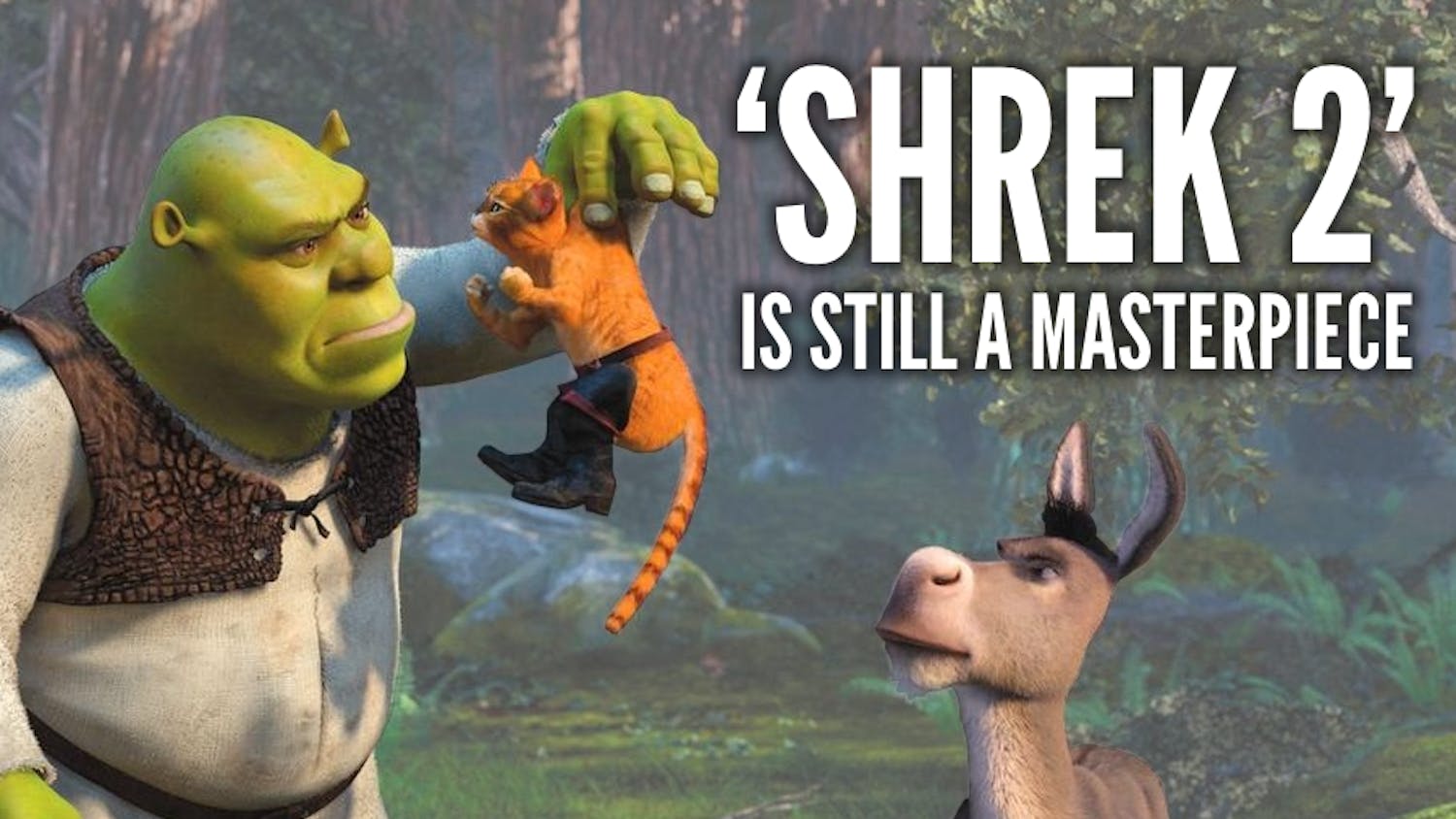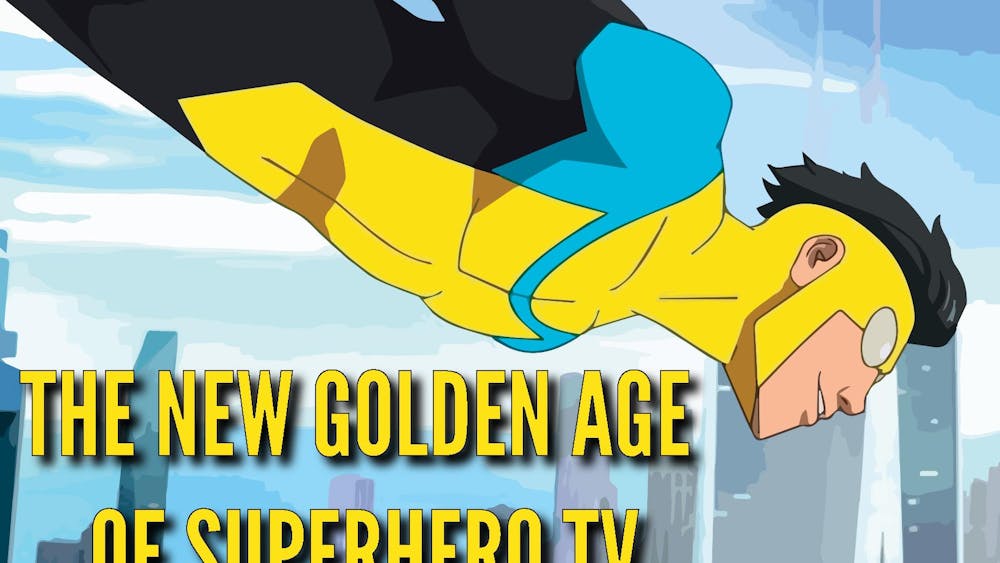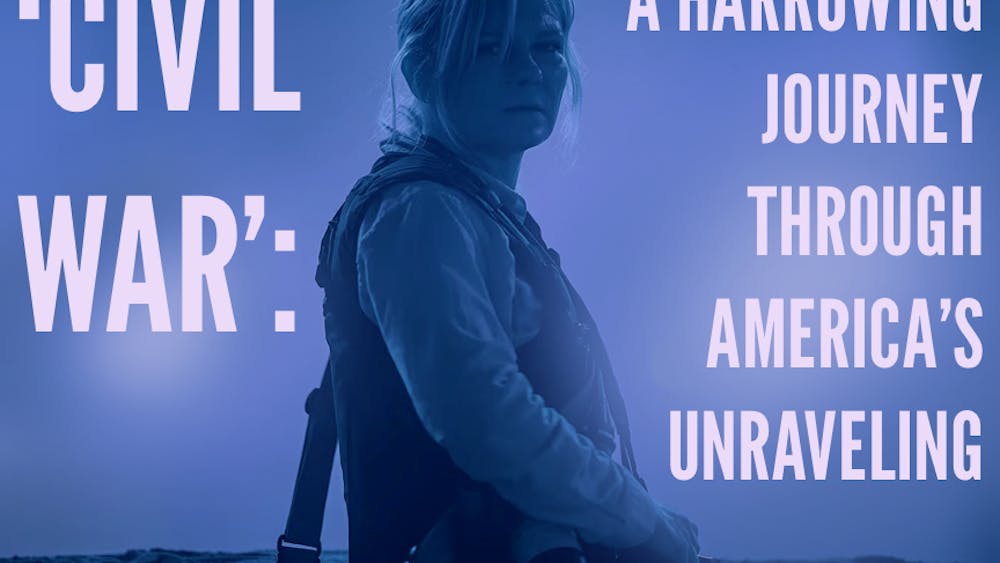
“The real question,” Michael (Ted Danson) says to Eleanor (Kristen Bell) in “The Good Place's” second season finale, “is what we owe to each other.” This reference to T.M. Scanlon’s work of contractual philosophy neatly summarizes the central ethos of Michael Schur’s delightfully loopy yet appreciably profound show. Yet, the third season of the NBC sitcom seems slightly desperate in its writing and bland in its plotting. What’s happened to arguably the best show on television?
At the end of the second season, “The Good Place,” through a series of characteristically daring maneuvers, sent its characters back to Earth, breathing and with no memory of the afterlife. Now, Eleanor, Chidi (William Jackson Harper), Jason (Manny Jacinto) and Tahini (Jameela Jamil) must earn enough points to enter the titular paradise by themselves. But goodhearted Michael and not-a-robot Janet (D’Arcy Carden) nudge their human companions toward virtue and away from vice, directly defying the powers that be.
After a second season of constant reinvention and seemingly endless creativity, the third season appears disappointing. All action is now literally earthbound, though the series still inserts some loopy visual touches. The heroes' goals make logical sense, but their quests to achieve them are far less concrete and immediate than in previous seasons. The Bad Place is a lifetime of poor decisions away, rather than a simple length of train tracks. Much of the season’s start is focused, boringly, on place-setting: throwing characters back together, setting up the series timeline, sweeping potential conflicts off the table. Schur and his team of writers reserve a special skill for discarding potential plots far earlier than expected as a return from Adam Scott’s Trevor is cut unexpectedly short.
The humans eventually find out about their afterlives. In standout episode “Jeremy Bearimy,” each human deals with the fallout from this reveal. And because they know about the Good Place, any motivation for any good action is no longer pure, so they have no chance of ever getting in. I believe this is where “The Good Place” finally shows its cards. To understand why, we must look at Michael Schur’s other sitcoms: “Parks and Recreation” and “Brooklyn Nine-Nine.”
“Parks and Recreation” and “Brooklyn Nine-Nine” both bear superficial differences in their settings and casts, but their deep concerns are also similar. Airing during the Obama era, “Parks and Recreation” focused on what it meant to be a good public servant. “Brooklyn Nine-Nine,” which began its run shortly before the Ferguson uprising, modeled what a good police officer is. Each show used its main casts as human ideals, imperfect yet improving, and pitted them against their opposites. In “Parks and Recreation,” Councilman Jamm and his corrupt politics served as this opposite. And, for “Brooklyn Nine-Nine,” a cop who racially profiled suspects filled the same role. Our heroes did not always succeed, but they did persevere and stay true to what they believed to be right.
“The Good Place” brings this subtext to the forefront and directly confronts what it means to be a good person. Its first two seasons confronted this idea in the abstract, but its third brilliantly brings it down to Earth. “The Good Place” needed a foil for its heroes, but the Bad Place is far too cartoonish and one-dimensional. Schur and his writers instead landed on far-too-relatable earthly ills: apathy and complacency. The opposite of morality, they suggest, is not one-dimensional immorality but rather those who can do good yet choose not to. Most everyone knows the difference between right and wrong, but it is up to them to decide which to choose. It is a message both relevant and timeless.
This thematic turn, of course, does not excuse the third season’s strange disjointedness. Early episodes of season three seem desperate, scrambling for a possible narrative route. The characters seem less interesting outside of the afterlife. Even though life in “The Good Place” is largely limited to a few sets, its world felt limitless because of clever, wonderfully designed world-building. By comparison, Earth feels drab, hypothetically more expansive yet more constrained. The wicked-fast plotting of season two gives way to some languid, directionless episodes in season three. Yet, despite this, “The Good Place” still remains a charming, heartfelt sitcom with aces casting and a smart backbone.
For all I know, “The Good Place” could trash its entire premise in a week, and my writing could no longer be relevant. That is, partially, what’s so exciting about this show. What makes it special is its commitment to understanding how to be moral and what we owe to each other. “The Good Place” is not naive; viewers can see the hard work and difficulties in being a good person. It might have slipped up a bit, but it still remains a must-see show in our morally confused times.













